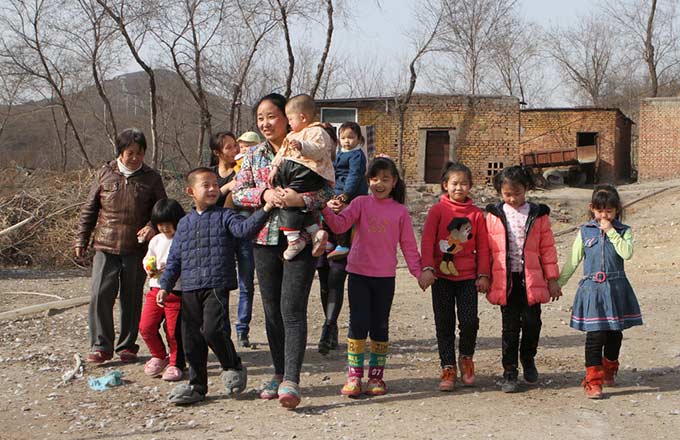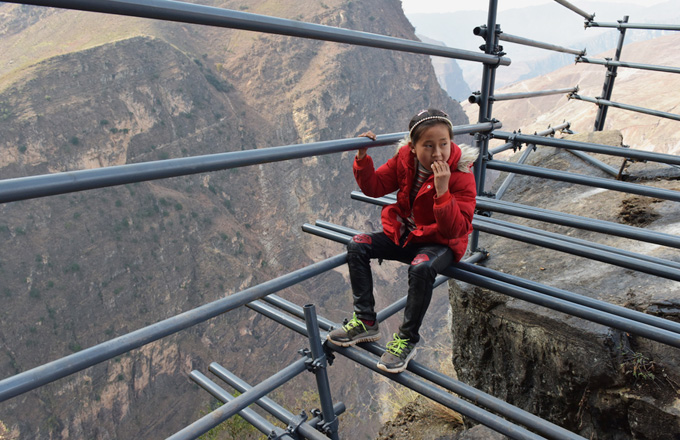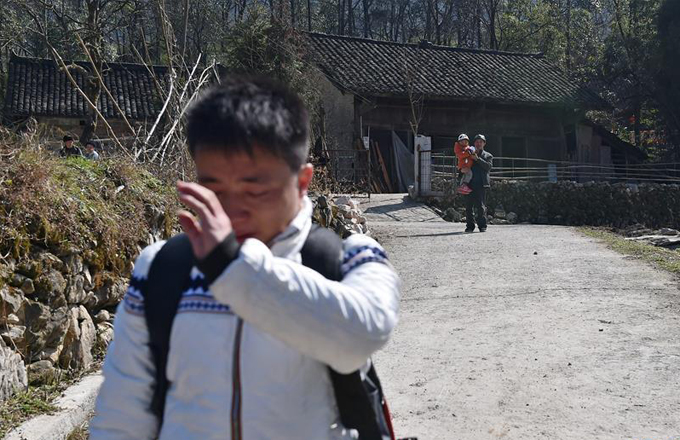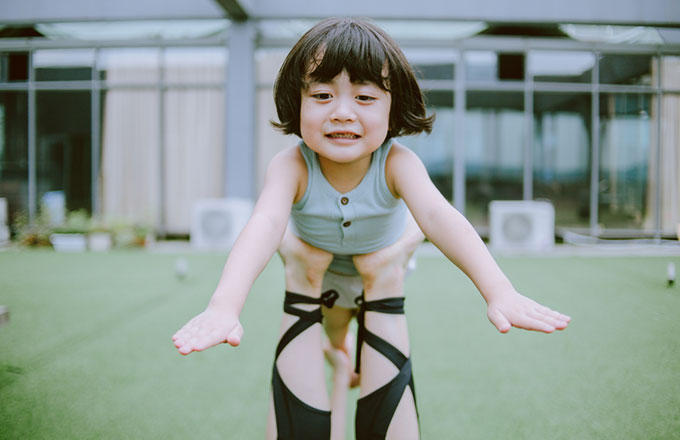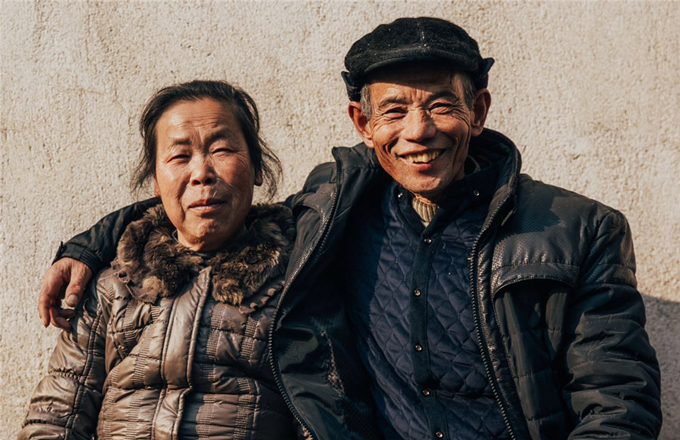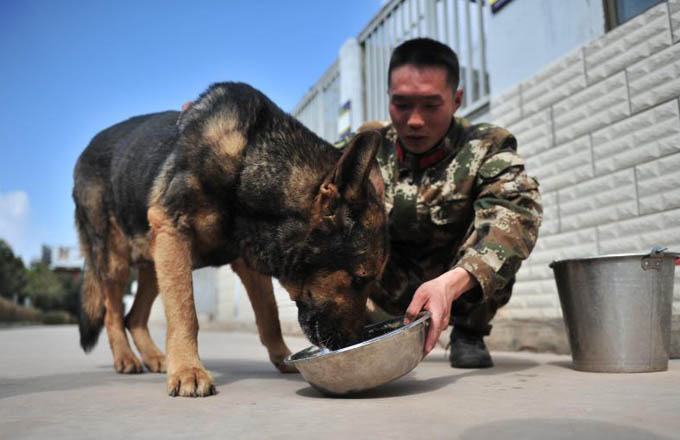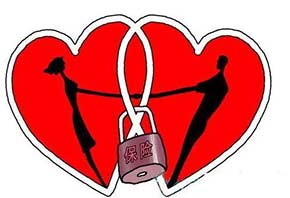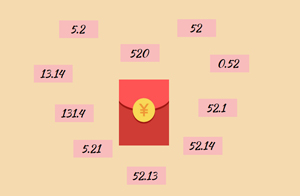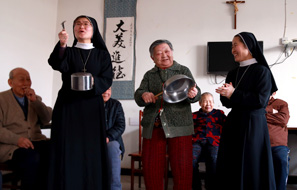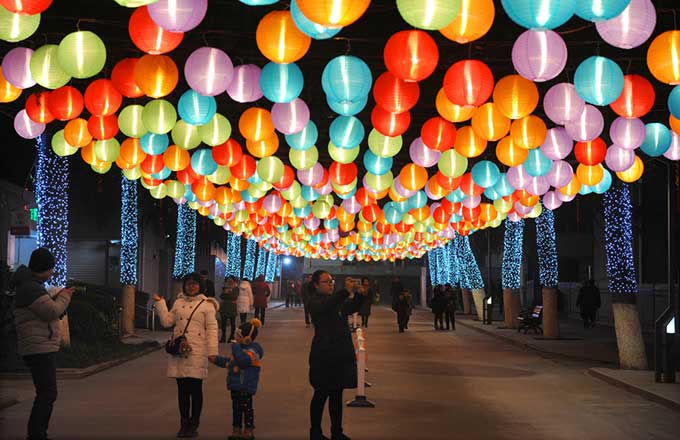Vote of confidence for PLA marine corps
"We have also introduced measures to cultivate such a spirit among our officers and soldiers," he said, adding that his brigade has established a system to encourage marines to improve their capabilities.
Wang said his brigade spends four months a year conducting field training and exercises including two months of exercises at sea.
He said the brigade sets a high standard for the marines' physical training.
"Each male soldier in my brigade must swim 3,000 meters in the sea carrying his weapon and other equipment to pass our swimming test," the commandant said, adding that one of the soldiers once swam nearly 10 kilometers with a full load from 7 am to 2 pm.
The history of the Chinese marine corps can be traced to 1953, when the PLA activated a marine corps regiment, according to Western publications. However, the corps embarked on a rocky road in its development in the 1960s and 1970s.
In 1980, the PLA reorganized the marine corps and founded a marine brigade.
"Now, our marine corps has been equipped with a number of the PLA's most advanced weapons and is able to perform a wide range of complicated tasks, including underwater approach and clandestine landings, fast-roping from helicopters and deploying from a submarine," Wang said.
It has also been equipped with electronic warfare apparatus, Wang said.
The lion spirit
Wang said at least 50 percent of soldiers in his brigade were born in the 1990s.
"The thoughts of soldiers from the '90s generation are more active than ours, and their perspectives on a lot of issues are different from ours," Wang said, suggesting that young soldiers are also able to learn new skills more quickly than their predecessors.
"They may be less able than soldiers born in the 1970s or 1980s to withstand tough training and a bad environment, but after being with my brigade, they become strong enough to stand up to challenges and hardship."
Yu Huangwei, a publicity officer with the brigade, said: "The brigade has been promoting the 'lion spirit' among our officers and soldiers. We characterize the spirit in four key words: loyalty, solidarity, wittiness, valor."
He added: "We have a Lion Square and many lion sculptures in our barracks."
This spirit inspires soldiers to fight like lions on the training ground, he added.
Lai Yong, deputy head of the brigade, said, "All of my frogman colleagues can climb a 30-meter wall with all their weapons and equipment within two minutes. Carrying nearly 20 kg, we are still able to swim several kilometers underwater."
The brigade's frogmen are also capable of launching surprise assaults from the air. "We conduct nearly 20 parachute training missions in Hainan province every year," Lai said.
Many marines in the brigade have practiced kung fu, he said, adding that retired marines are in demand as recruits at local public security authorities and private security companies.
Zhang Yitao, part of the team of frogmen, said that when it comes to combat capability, individual or team, the brigade compares equally to its counterparts from around the world.
His comments were echoed by Feng Zijie, from one of the brigade's land battle battalions, who said the PLA marine corps needs to find a solution to problems in its collaboration with other military services in real combat.
In contrast to its US counterpart, it does not have its own aviation units and relies heavily on the PLA navy's air regiments in direct support of troops and airborne operations, military observers said.
Women warriors
The PLA marine corps also boasts an elite group of servicewomen.
Wang said:"The first batch of female marines in my brigade was enlisted in 2000 when the brigade activated a reconnaissance squadron of servicewomen.
"Despite being unable to match the men physically, they possess greater discretion and pay more attention to detail. Moreover, their achievements in training and on exercises have proved they are as tough as their male peers."
Lai said, "In a skills contest between marines from my brigade and those from the Australian navy, our women stunned the Australians after they jumped from a 5-meter-high platform one by one without any hesitation. Even some of the male marines might think about that for a second or two."
Jian Wenjun, leader of a female marines' amphibious reconnaissance team, said: "A real battle will not distinguish whether you are a man or a woman. So we must train as hard as the male soldiers.
"Many female marines are as eager as I am to have the chance to serve our country on the battlefield."
In 2012, Jian was elected one of the 10 "Blade Warriors" of the brigade, an honor for outstanding marines.
She also recalled her experiences in the exchange with Australian soldiers.
"Nearly 10 female marines from my brigade took part in this, and soldiers from both countries competed in events including surmounting obstacles to get to a destination, climbing and shooting, and we won in almost every event."
Yu Na'na, Party chief of the brigade's servicewomen, suggested the marine corps should open some of its training activities that are currently off limits for female marines due to safety concerns.
"We are determined and able to become better," Yu said.
zhaolei@chinadaily.com.cn
- Navy conducts West Pacific live-fire drill
- Singapore navy vessel visits Shanghai
- Claim against Chinese navy 'a fabrication'
- Navy begins patrol-training mission
- Chinese Navy to hold drill in S China Sea, Pacific
- Navy commandos conduct anti-piracy drill
- Senegal, US hold navy exercise
- China proves Japan's scouting of Chinese navy
- China's new frigate delivered to PLA Navy
- Philippine Navy ships patrol near Sabah


